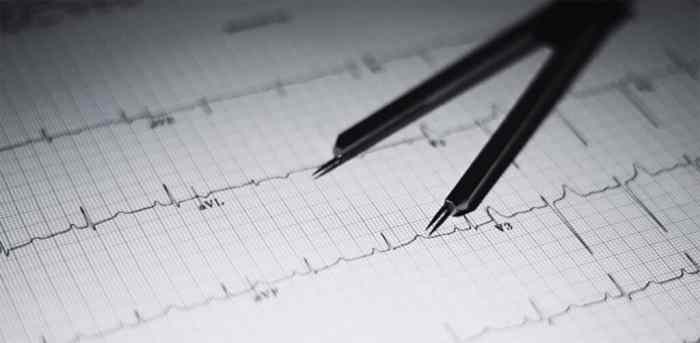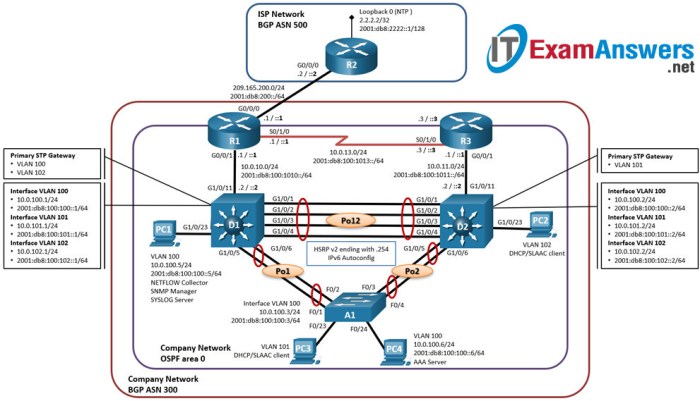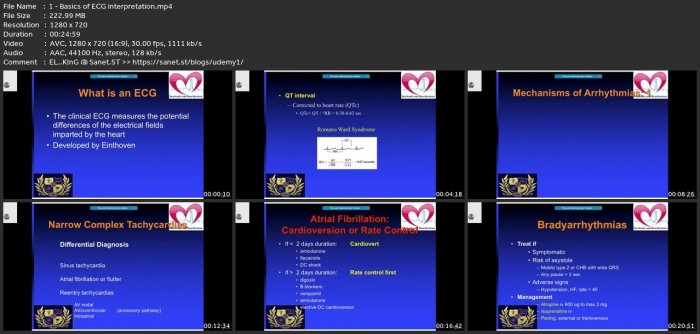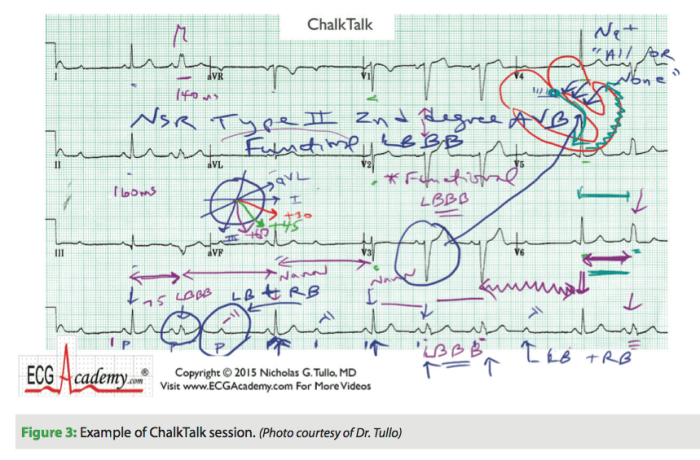Embark on an ECG mastery journey with the ECG Academy Level 1 Final Exam. This comprehensive assessment is your gateway to unlocking expert ECG interpretation skills, empowering you to make informed clinical decisions with precision.
Delve into the intricacies of ECG analysis, covering fundamental concepts, advanced techniques, and real-world applications. Prepare to tackle the exam with confidence and emerge as a proficient ECG interpreter, ready to excel in your healthcare practice.
Exam Overview

The ECG Academy Level 1 Final Exam is the culminating assessment for the ECG Academy Level 1 course. This exam is designed to evaluate your understanding of the fundamental concepts and principles of electrocardiography.
The exam consists of 100 multiple-choice questions and has a time limit of 2 hours. Each question is worth 1 point, and the passing score is 70%. The exam covers a wide range of topics, including:
Exam Format
- Electrode placement
- ECG wave identification
- Heart rate and rhythm analysis
- Arrhythmia recognition
- Basic ECG interpretation
Exam Content

The ECG Academy Level 1 Final Exam encompasses a comprehensive range of ECG concepts and skills, providing a thorough assessment of your understanding of electrocardiography.
The exam will delve into various aspects of ECG interpretation, including:
Cardiac Anatomy and Physiology
The exam will test your knowledge of the heart’s anatomical structures and their physiological functions, including:
- Heart chambers and valves
- Electrical conduction system
- Cardiac cycle
ECG Waveforms
You will be expected to demonstrate a solid understanding of the different ECG waveforms, including:
- P wave
- QRS complex
- T wave
- U wave
ECG Intervals and Segments
The exam will assess your ability to identify and measure ECG intervals and segments, including:
- PR interval
- QRS duration
- QT interval
ECG Interpretation
You will be required to interpret ECGs and identify common arrhythmias, such as:
- Sinus rhythm
- Atrial fibrillation
- Ventricular tachycardia
ECG Monitoring
The exam will also test your knowledge of ECG monitoring techniques, including:
- Lead placement
- Artifact recognition
- Troubleshooting
Preparation Strategies

The key to acing the ECG Academy Level 1 Final Exam lies in effective preparation. Here’s a comprehensive guide to help you study smart and succeed.
Begin by understanding the exam format and content. The exam comprises 100 multiple-choice questions covering various aspects of ECG interpretation. Familiarize yourself with the topics and question types to target your preparation accordingly.
Active Recall
Passive reading alone is not enough for effective retention. Practice active recall by regularly testing your understanding through practice questions, flashcards, or teaching the concepts to others. This forces your brain to retrieve information, strengthening your memory and improving comprehension.
Spaced Repetition
Spaced repetition is a powerful technique that involves reviewing material at increasing intervals. This helps to move information from short-term to long-term memory. Use flashcards or spaced repetition software to schedule your reviews and reinforce your knowledge over time.
Practice ECG Interpretation
Mastering ECG interpretation is crucial for success in this exam. Practice interpreting ECGs from various sources, including real patient cases, online databases, or simulation software. The more you practice, the more confident you’ll become in recognizing patterns and making accurate diagnoses.
Review Exam Material
Thoroughly review the exam material provided by ECG Academy. This includes textbooks, online modules, and practice questions. Focus on understanding the concepts rather than memorizing facts. Seek clarification on any topics you find challenging.
Take Practice Exams
Taking practice exams under timed conditions simulates the actual exam experience and helps you identify areas for improvement. Analyze your results carefully, paying attention to your strengths and weaknesses. Use this information to adjust your study plan and focus on the areas that need more attention.
Sample Questions and Answers

The ECG Academy Level 1 Final Exam tests your understanding of electrocardiography (ECG) concepts. To prepare, review the following sample questions and their detailed explanations.
Multiple Choice
- Question:Which of the following is the normal heart rate range for adults at rest?
- 30-40 bpm
- 40-60 bpm
- 60-100 bpm
- 100-120 bpm
Answer:c. 60-100 bpm
- Question:Which of the following ECG waves represents ventricular depolarization?
- P wave
- QRS complex
- T wave
- U wave
Answer:b. QRS complex
- Question:Which of the following is a type of arrhythmia characterized by a heart rate below 60 bpm?
- Tachycardia
- Bradycardia
- Fibrillation
- Tachyarrhythmia
Answer:b. Bradycardia
The normal heart rate range for adults at rest is typically between 60 and 100 beats per minute (bpm).
To help you prepare for your ECG Academy Level 1 Final Exam, consider studying some quotes from Emilia in Othello . Emilia is a character in the play who provides insight into the themes of jealousy and betrayal, which are also relevant to the ECG Academy Level 1 Final Exam.
The QRS complex is the set of waves that represents the electrical depolarization of the ventricles, which is the contraction of the heart’s lower chambers.
Bradycardia is an arrhythmia where the heart rate is abnormally slow, below 60 bpm.
True/False
- Question:The P wave represents atrial repolarization. Answer:False
- Question:The ST segment is the period between the QRS complex and the T wave. Answer:True
The P wave represents atrial depolarization, not repolarization.
The ST segment is the segment of the ECG that occurs after the QRS complex and before the T wave.
Short Answer, Ecg academy level 1 final exam
- Question:Describe the characteristics of a normal sinus rhythm ECG. Answer:A normal sinus rhythm ECG typically has the following characteristics:
- Regular P waves
- PR interval of 0.12-0.20 seconds
- QRS complex duration of less than 0.10 seconds
- T waves that are upright in leads I, II, and V3-V6
Additional Resources: Ecg Academy Level 1 Final Exam

Supplement your exam preparation by exploring the following resources:
Websites:
- ECG Academy:Official website with comprehensive study materials, practice tests, and a community forum.
- Heart Rhythm Society (HRS):Non-profit organization providing educational resources, guidelines, and a database of ECG cases.
- 12-Lead ECG: Interpretation and Analysis:Online resource with interactive tutorials, quizzes, and case studies.
Books:
- ECG Interpretation Made Incredibly Easy:A beginner-friendly guide with clear explanations and illustrations.
- Dubin’s Rapid Interpretation of EKGs:A concise reference for quick ECG analysis.
- ECG Pocket Brain:A portable guide with concise information and high-yield tips.
Other Materials:
- ECG Interpretation Software:Software programs that allow you to practice ECG analysis and compare your results with expert interpretations.
- ECG Flashcards:Portable cards with ECG tracings and key interpretation points.
- ECG Workshops:In-person or online workshops led by experienced ECG interpreters.
Helpful Answers
What is the ECG Academy Level 1 Final Exam?
The ECG Academy Level 1 Final Exam is a comprehensive assessment designed to evaluate your understanding of fundamental ECG concepts and interpretation skills.
How do I prepare for the ECG Academy Level 1 Final Exam?
Effective preparation involves thorough study of exam materials, practice ECG interpretation, and seeking guidance from experienced ECG professionals.
What topics are covered on the ECG Academy Level 1 Final Exam?
The exam encompasses a wide range of ECG topics, including cardiac anatomy, electrical conduction, arrhythmia recognition, and clinical applications.
